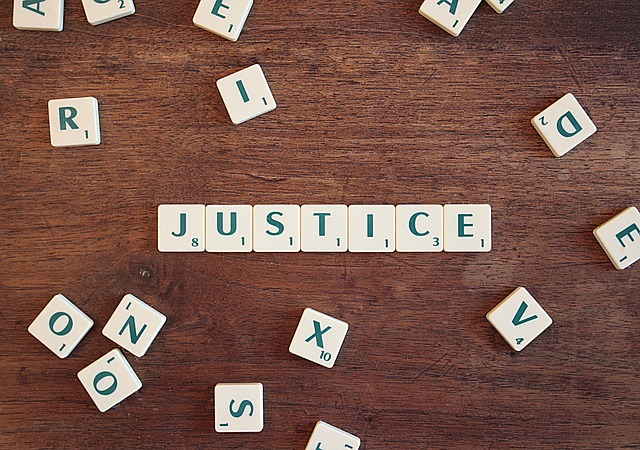Finding the Right Child Custody Attorney Near Me

Having the right attorney by your side can make all the difference regarding child custody cases. A skilled child custody lawyer can help you navigate the complex legal process, protect your parental rights, and advocate for the best interests of your children. In this comprehensive guide, we’ll explore how to find the best child custody attorney near you and what to expect throughout the process.
Understanding Child Custody

Before we dive into finding the right attorney, it’s essential to understand the basics of child custody. Child custody is usually determined as part of a divorce or separation proceeding. There are two main types of custody:
- Legal custody refers to the right to make important decisions about a child’s upbringing, such as education, healthcare, and religion.
- Physical custody refers to where the child lives and who is responsible for their day-to-day care.
Custody can be divided into joint custody, where both parents share decision-making authority and/or physical custody, and sole custody, where one parent has primary responsibility.
Factors to Consider When Choosing a Child Custody Attorney

When selecting a child custody attorney, there are several key factors to keep in mind:
Experience and Expertise
Look for an attorney with extensive experience handling child custody cases like yours. They should have a deep understanding of the laws and procedures governing custody in your state, as well as a proven track record of success.
Communication and Availability
Choose an attorney who is responsive, communicative, and available to answer your questions and address your concerns throughout the process. They should keep you informed about the status of your case and explain legal concepts in plain language.
Approach and Philosophy
Consider an attorney’s approach to child custody cases. Do they prioritize negotiation and mediation, or are they more likely to take a case to trial? Make sure their philosophy aligns with your goals and priorities.
Reputation and Reviews
Research an attorney’s reputation in the legal community and read reviews from past clients. Look for an attorney respected by their peers and has a history of satisfied clients.
Compatibility and Trust
Finally, choose an attorney with whom you feel comfortable and can trust to represent your interests. Child custody cases can be emotionally charged, so it’s essential to have an advocate who makes you feel supported and understood.
The Role of a Child Custody Attorney

A child custody attorney is critical in helping you achieve the best possible outcome for your family. Some of the essential responsibilities of a custody attorney include:
- Evaluating your case and explaining your legal rights and options
- Developing a strategy to achieve your desired custody arrangement
- Gathering evidence to support your case, such as witness statements, school records, and medical documents
- Negotiating with the other parent or their attorney to reach an agreement
- Representing you in court hearings and trials
- Advocating for your child’s best interests throughout the process
How Child Custody is Determined

Courts use a variety of factors to determine child custody arrangements, with the guiding principle being the child’s best interests. Some of the critical factors that may be considered include:
- The child’s age, health, and emotional ties to each parent
- Each parent’s ability to provide a stable and loving home environment
- The child’s relationship with siblings and extended family members
- The child’s schooling and community ties
- Any history of domestic violence, substance abuse, or criminal activity
- The child’s preferences, if they are old enough to express them
Your attorney can help you understand how these factors may apply to your specific case and work to present evidence that supports your desired custody arrangement.
Negotiating a Custody Agreement

Parents can often reach a custody agreement through negotiation and mediation without needing a lengthy and costly court battle. A skilled child custody attorney can help facilitate these negotiations and work to find a resolution that meets the needs of all parties involved.
Mediation can be a particularly effective tool in custody cases, as it allows parents to work with a neutral third party to develop a parenting plan that prioritizes the best interests of their children. Your attorney can represent you during mediation sessions and provide guidance and support.
Preparing for Court

If a custody agreement cannot be reached through negotiation, your case may need to proceed to trial. In this scenario, your attorney will work to build a strong case on your behalf and present evidence and arguments to the judge.
Preparing for a custody trial can be time-consuming and emotionally draining, but your attorney will be by your side every step of the way. They may conduct depositions, gather expert witness testimony, and prepare you for questioning on the stand.
The Importance of Putting Children First

Throughout the custody process, it’s crucial to prioritize your children’s well-being and best interests. This means setting aside personal grievances and creating a stable, nurturing environment for your kids.
Your attorney can help you keep this perspective in mind and make decisions that support your children’s emotional and developmental needs. They may also work with mental health professionals or other experts to ensure that your custody arrangement is in your children’s best interests.
Modifying a Custody Order
Even after a custody order is in place, circumstances that may warrant a modification can change. For example, if one parent relocates, loses their job, or develops a substance abuse problem, it may be necessary to revisit the custody arrangement.
If you need to modify a custody order, your attorney can help you understand the legal requirements and gather evidence to support your case. They can also represent you in court hearings and work to achieve a modified arrangement that meets your family’s changing needs.
The Role of Child Support
In addition to determining custody, courts may also order one parent to pay child support to the other. Child support ensures that both parents contribute financially to their children’s upbringing and meet their children’s needs.
Your attorney can help you understand how child support is calculated in your state and work to ensure that any support order is fair and reasonable. They can also assist with enforcing or modifying support orders as needed.
Dealing with Complex Custody Issues
Some child custody cases involve complex issues that require special attention and expertise. For example:
- Cases involving domestic violence or abuse
- Cases involving parental substance abuse or mental health issues
- Cases involving parental relocation or international custody disputes
- Cases involving children with functional needs
Working with an experienced custody attorney who has handled similar cases is essential in these situations. They can provide specialized knowledge and advocacy to protect your children’s safety and well-being.
Collaborative Divorce and Custody
In some cases, parents may choose to pursue a collaborative divorce, in which they work with a team of professionals to resolve all aspects of their divorce, including child custody, outside of court. This approach can be less adversarial and more focused on finding mutually beneficial solutions.
Suppose you’re interested in exploring collaborative divorce. In that case, your attorney can help you understand the process and refer you to other professionals, such as financial advisors and mental health counselors, who can provide additional support and guidance.
The Benefits of Working with a Local Attorney
Working with a local attorney familiar with the courts and judges in your area can be invaluable regarding child custody cases. A local attorney will have a deep understanding of the legal landscape and can provide personalized advice tailored to your specific situation.
Additionally, a local attorney will be more accessible and available to meet with you in person, attend court hearings, and provide ongoing support throughout the process. They may also have established relationships with other local professionals, such as mediators and guardians ad litem, who can play essential roles in your case.
Conclusion
Navigating a child custody case can be one of the most challenging and emotional experiences a parent can face. But with the right attorney, you can feel confident and supported.
By understanding the factors to consider when choosing a child custody attorney, their role in your case, and the importance of prioritizing your children’s best interests, you can make informed decisions and work towards a positive outcome for your family.
If you’re facing a child custody case, don’t hesitate to contact a qualified and compassionate attorney near you. With their guidance and advocacy, you can protect your rights as a parent and create a stable, nurturing environment for your children to thrive.
Related Terms: child custody lawyers, child custody attorneys, custodial parent, joint legal custody, family law attorney, custody and visitation, supervised visitation, sole physical custody,













